More and more sophisticated scams are targeting children and teenagers online. Therefore, on the afternoon of July 30th, INTERPOL HQ organized the "Cyber Aware Webinar for Youth 2025" to raise awareness and improve self-protection skills online for young people.
The workshop featured participation and contributions from many international experts.
The internet is a double-edged sword.
Helena Yixin Huang, a researcher at the S. Rajaratnam School of International Studies (RSIS) at Nanyang Technological University (Singapore), pointed out a series of common forms of cybercrime today, such as: creating fake accounts, impersonating relatives, friends, or reputable organizations to deceive people's trust; stealing information, sending messages and emails containing malicious links; buying and selling virtual credit and products; money laundering through digital payment channels; trading stolen personal data, etc.
The consequences of falling prey to cybercriminals are extremely serious: loss of identity, stress, anxiety, shame, loss of trust, and even direct impacts on education, work, and finances. (Image: AI)
According to Ms. Huang, cyberspace is a double-edged sword. On the one hand, it helps us learn, work, entertain, and connect globally. On the other hand, cyberspace is a fertile ground for malicious actors to exploit and attack. Students are the primary targets.
"The two most typical scams targeting young people involve money and romance." Taking advantage of students' desire for "easy jobs with high salaries," many "phantom" companies have reaped huge profits from these scams. Female students are particularly vulnerable to these "romantic traps." Once the relationship deepens, the scammers entice them into investing in illegal projects, extort money through sensitive images, and so on," Ms. Huang stated.
Toni Friedman, Assistant Director for Digital Technology, Policy and Innovation at The Asia Foundation, emphasized the importance of proactive user engagement.
According to Toni Friedman, AI-generated content verification tools are not yet perfectly accurate. Therefore, users need to be vigilant and self-censor all information online, and should not place complete trust in technology. Human vigilance and critical thinking are the best shields against increasingly sophisticated scams in the AI era.
From "victim hunter" to "criminal hunter".
At the seminar, cybersecurity expert Ngo Minh Hieu (Hieu PC) frankly shared his past mistakes, hoping to warn young people to stay away from illegal activities through his own story.
Cybersecurity expert Ngo Minh Hieu warns students to avoid traps in cyberspace. Photo: FBNV
"At 16, I joined an underground network, carrying out cyber operations. The allure of money was so strong that I neglected everything else; I no longer focused on my studies. After graduating from high school, I earned a considerable amount of money, enough for me to study abroad," said expert Hieu PC.
In 2013, Hieu PC was arrested by the US Secret Service and sentenced to 13 years in prison for stealing and selling the personal information of more than 200 million Americans. In 2015, he was sentenced to 13 years in federal prison.
However, Hieu PC was released earlier than expected and returned to Vietnam in 2020. Three months after his release, he joined the National Cybersecurity Monitoring and Security Center, undertaking tasks related to digital investigation, investigating cybercrimes, and examining potentially leaked data.
"There were days I earned $25,000, but I never slept well; I was always living in anxiety. Before, I 'hunted' victims, but now I 'hunt' criminals. I hope young people, especially those who love information technology, need to be cautious, build their own value, and absolutely never become victims of money," - expert Hieu PC advised.
Source: https://nld.com.vn/bai-hoc-xuong-mau-tu-chuyen-gia-cong-nghe-gui-gam-sinh-vien-196250730151737611.htm


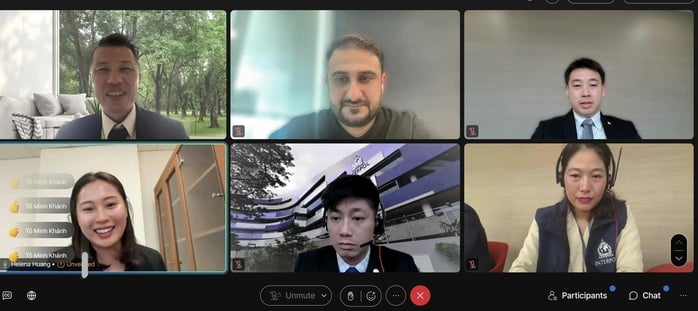


![[Photo] Two flights successfully landed and took off at Long Thanh Airport.](/_next/image?url=https%3A%2F%2Fvphoto.vietnam.vn%2Fthumb%2F1200x675%2Fvietnam%2Fresource%2FIMAGE%2F2025%2F12%2F15%2F1765808718882_ndo_br_img-8897-resize-5807-jpg.webp&w=3840&q=75)









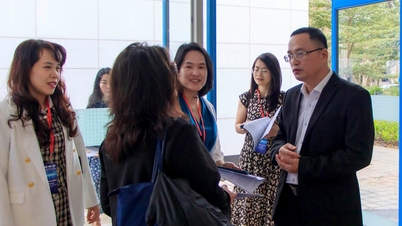



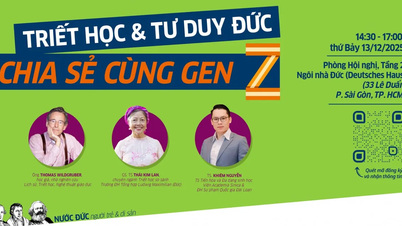










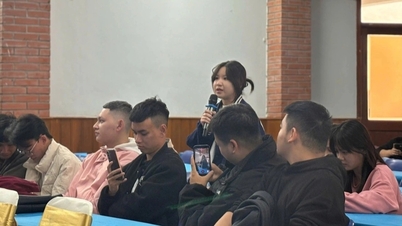
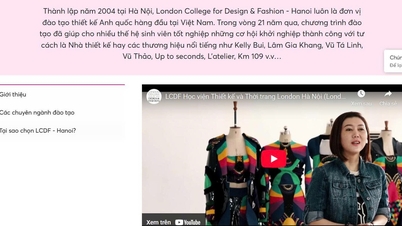
















































































Comment (0)